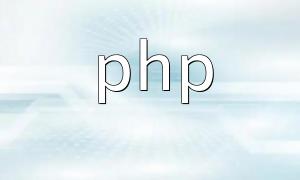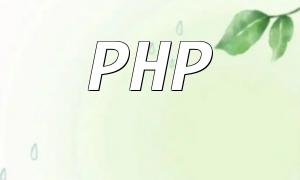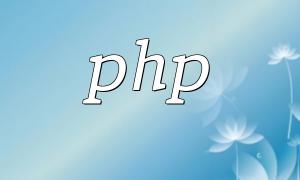In PHP development, adhering to consistent and standardized coding practices is essential for maintaining code quality. Good coding standards not only improve code readability but also make projects easier to maintain and extend. This article will share key methods for optimizing PHP coding standards, along with practical code examples to help developers improve project quality.
Choosing descriptive names for variables and functions can significantly improve code readability and understanding. Avoid vague names or abbreviations, and instead opt for names that clearly reflect the purpose of the code.
// Not recommended
$x = 5;
$y = 10;
$z = add($x, $y);
function add($a, $b) {
return $a + $b;
}
// Recommended
$number1 = 5;
$number2 = 10;
$sum = calculateSum($number1, $number2);
function calculateSum($num1, $num2) {
return $num1 + $num2;
}
Adding comments to explain the functionality and purpose of the code helps other developers quickly understand what the code is doing. Keep comments concise and focused on key logic and functionality.
// Get user info
function getUserInfo($userId) {
// Query user information by user ID
$userInfo = getUserData($userId);
// Return user information
return $userInfo;
}
Using global variables increases code complexity and makes it harder to maintain and test. Instead, use classes and objects to encapsulate data and functionality, avoiding the need for global variables.
// Not recommended
$globalVar = 10;
function add($num) {
global $globalVar;
return $num + $globalVar;
}
// Recommended
class Calculator {
private $globalVar;
public function __construct($globalVar) {
$this->globalVar = $globalVar;
}
public function add($num) {
return $num + $this->globalVar;
}
}
$calculator = new Calculator(10);
$sum = $calculator->add(5);
Proper spacing and indentation improve code readability and help avoid confusion. Ensure consistent indentation for code blocks and add appropriate empty lines between functions and classes.
// Not recommended
function calculateSum($num1, $num2){
$result = $num1 + $num2;
return $result;
}
// Recommended
function calculateSum($num1, $num2) {
$result = $num1 + $num2;
return $result;
}
The PHP development community has defined a set of coding standards, such as PSR-1, PSR-2, and PSR-4. Following these standards helps developers maintain consistency across projects and improves the readability and maintainability of the codebase.
Exception handling is crucial in PHP development. It helps manage potential errors and ensures the code runs smoothly even in unexpected situations.
function divide($num1, $num2) {
if ($num2 == 0) {
throw new Exception('Divisor cannot be zero.');
}
return $num1 / $num2;
}
try {
$result = divide(10, 0);
} catch (Exception $e) {
echo 'Error: ' . $e->getMessage();
}
By adhering to optimized PHP coding standards, we can significantly improve a project's readability and maintainability, reduce potential errors, and eliminate redundant code. By developing good coding habits, developers can write higher-quality PHP code, improving both productivity and code reliability.









